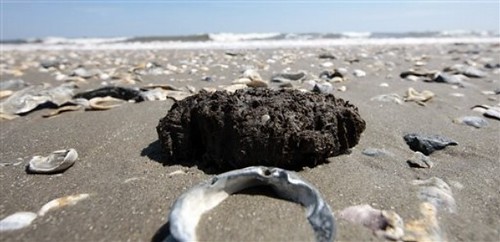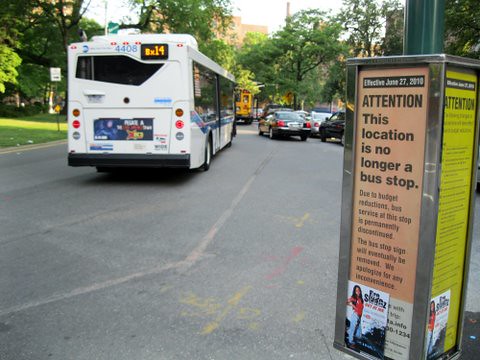Interesting article about the need for countervailing institutions/civil society

This Wednesday, April 13, 2011 picture shows an oil tar ball at Fourchon Beach in Port Fourchon, La. Tar balls and oil are still in abundance on the Louisiana coast a year after the Deepwater Horizon oil spill. (AP Photo/Dave Martin)
On the anniversary of the failed oil platform in the Gulf of Mexico, the BP Macondo oil platform, the New Orleans Times-Picayune has an article, "For many in Louisiana, the real disaster of 2010 wasn't the oil spill but the drilling moratorium," about the impact one year later.
Historian Douglas Brinkley opines that the reason that the Louisianan environment is so degraded is because the power structure is well-integrated with the oil and gas industry, and that the dearth of a significant local and state-based environmental movement means that there are few checks and balances on the industry. From the article:
he problem in Louisiana, said Rice University historian Douglas Brinkley, who is writing a book on the history of the environmental movement, is that there is no countervailing political pressure in the state.
"I'm looking at all 50 states -- and the most abused ecosystem is this ragged boot of Louisiana," Brinkley said. But there has never been an effective environmental movement in Louisiana, he said, to call out the state's political leadership when it toes industry's line.
With the world watching the BP disaster, some observers wonder if the Louisiana delegation overplayed its hand. I was struck by it at the time, how much of their focus was on getting the drilling started again," said Norman Ornstein, a scholar of Congress at the American Enterprise Institute.
Obviously, Ornstein said, there were reasons to worry about losing even more jobs in a perilous economy and after suffering the loss of jobs in fishing and tourism as a result of the spill. And there were concerns that the industry's enemies in Congress and the environmental movement would seek to use the disaster to try to shut down drilling altogether.
But their single-minded fervor to resume drilling even amidst the "massive devastation" seemed off, said Ornstein, who said it called to mind the devotion of the Michigan delegation to the auto industry as it rode to ruin.
This is relevant to cities on at least two dimensions:
1. Many cities don't have a diverse legislature, so policy and direction tends to be one-sided
2. Some cities (such as DC), have a pretty weak "civil society," and lack strong local organizations that successfully push good government and related agenda items, building a stronger environment for accountability, fairness, and transparency.
What has happened in Louisiana vis-a-vis the oil, gas, and chemical industries, happens in those cities and counties, just with different industries and different, but still well-connected, people.

Image: Transportation Nation.
Labels: civic engagement, electoral politics and influence, government oversight, management of cities, participatory democracy and empowered participation, protest and advocacy



0 Comments:
Post a Comment
<< Home